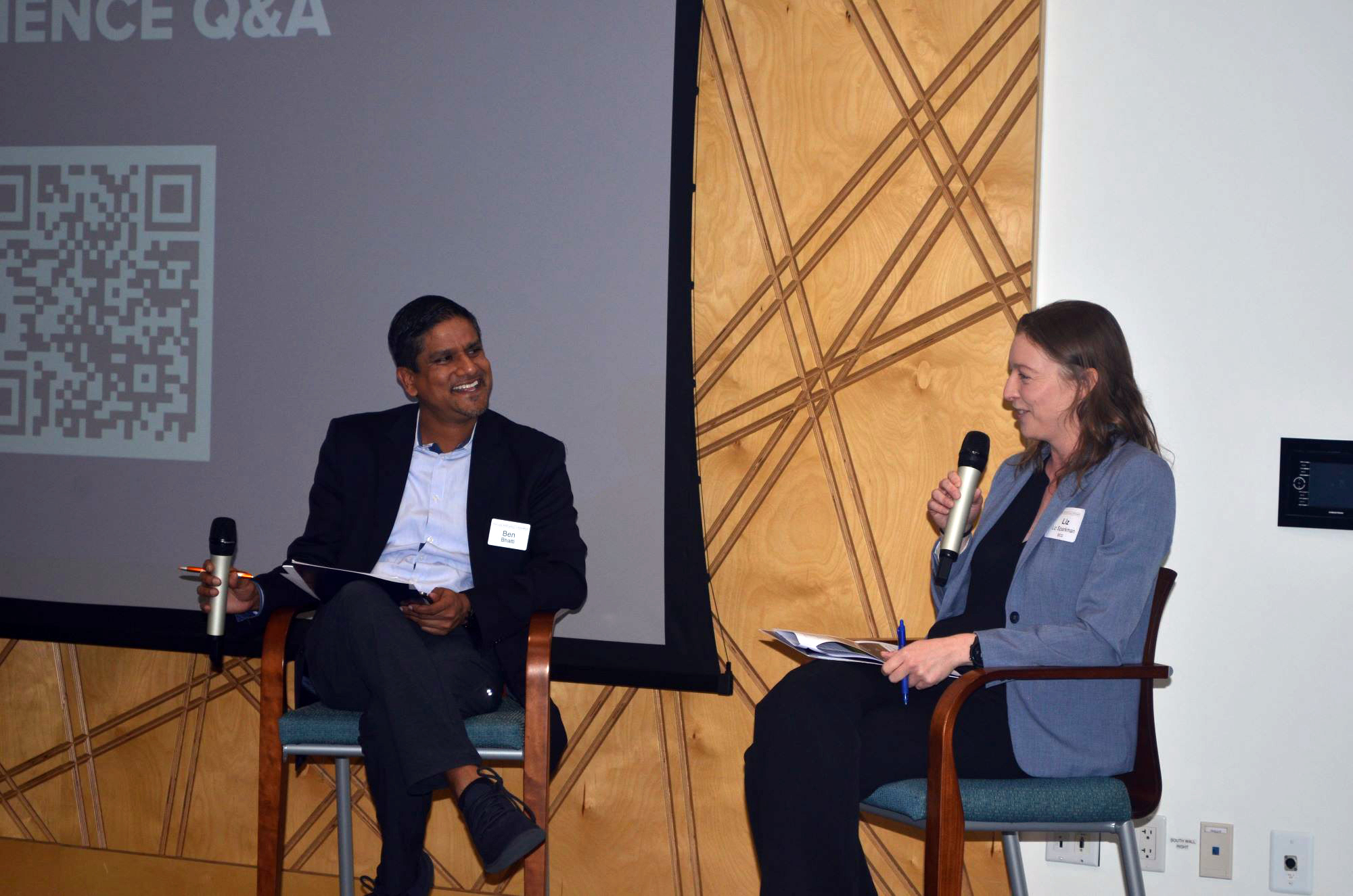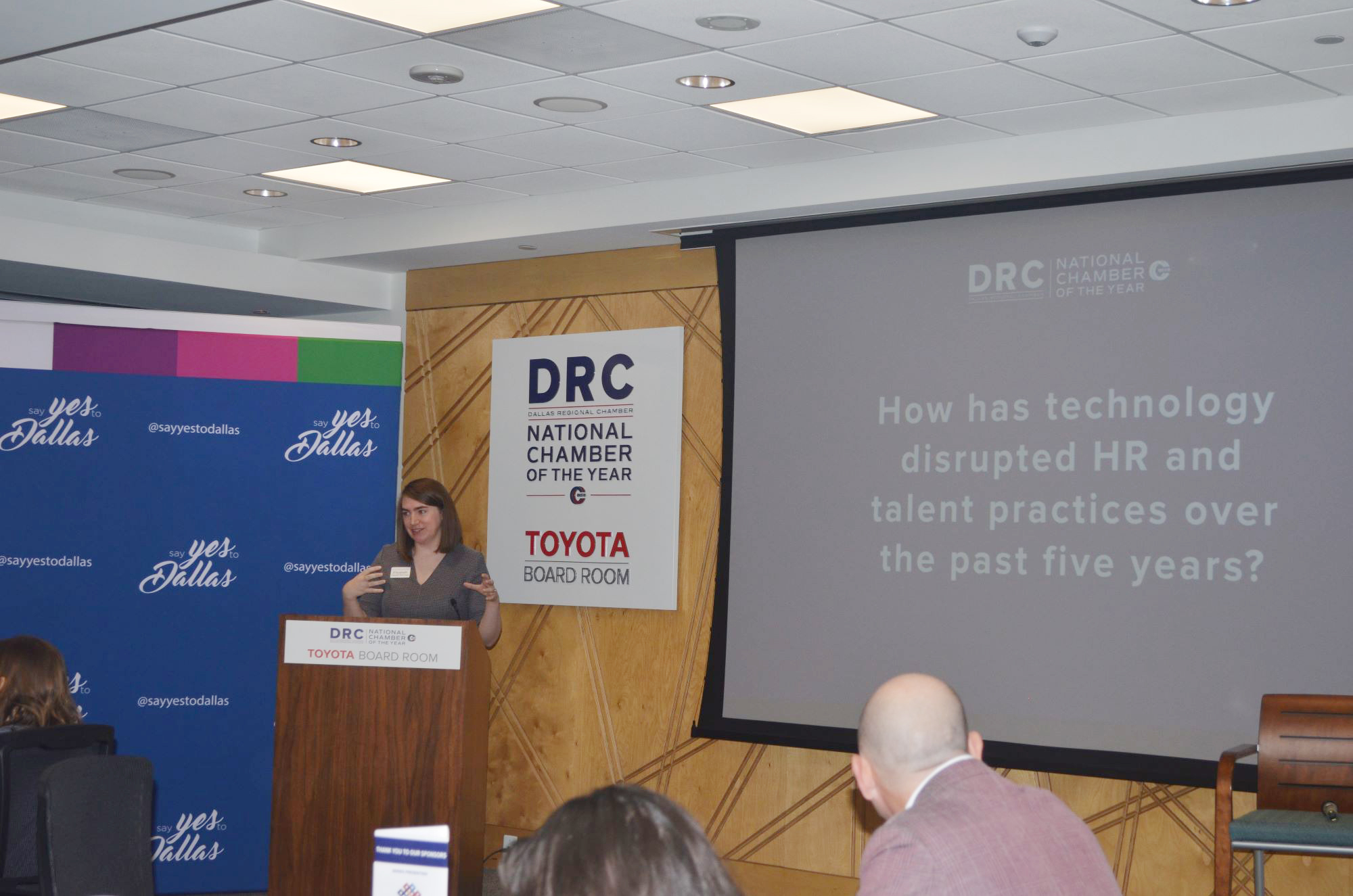By Catie George, Manager, Communications and Storytelling
The Dallas Regional Chamber (DRC) hosted Liz Sparkman, Principal at BCG, at its final Talent Attraction Talk of the year on Wednesday, Nov. 1, to discuss the influence of technology, and specifically artificial intelligence (AI), on business and human resources.
“I think generative AI is only at the beginning,” said Sparkman. “I would predict that generative AI will have a greater impact in the long term when we think within human resources. Specifically, after analyzing all of the different tasks that is performed within HR, there could be a 20% to 30% productivity improvement.”

Generative AI is unique in that it can produce content. It broke into the public consciousness in a big way with the release of ChatGPT in November of last year, and has since become a staple of conversation regarding future technology.
Sparkman also discussed the specifics of how AI could affect the future job market, though she does not anticipate AI will take over people’s jobs on a massive scale as some critics speculate.
“We’re seeing dramatic changes and shifts of the actual tasks people are doing. I like to think about it in terms of tasks as opposed to jobs,” said Sparkman. “There will be changes in jobs and what is composed within a job, but a lot of the actual changes will be, ‘what tasks are you doing differently today versus tomorrow?’ And there will be a portion of jobs, roughly 10%, that will be massively disrupted by AI and potentially even replaced. There will be 60% of tasks that will be augmented or supported.”
Though those statistics may be concerning to some, there will also be job creation and adaptation due to AI.
“I think we will see roles emerge, like a Chief AI Ethics Officer,” said Sparkman. “I think the ability to learn will be even more important now because if we imagine that 10% of my tasks or 50% of the tasks that I do in a job today are going to be different tomorrow, I need to be able to adapt to that.”
Sparkman also dove into the specific effects AI could have on human resources within a company.
“When it comes to HR, what’s top of mind for Chief HR Officers and HR leadership is not only what changes within the HR function, but how does HR need to pivot or support a change in enterprise strategy as well?” said Sparkman. “A core frame for a process in HR is to anticipate, attract, develop, and engage. AI can impact every single stage of that process in different ways. There’s lots of efficiency gain, but you have to pick the right point.”

Companies using AI still need to be mindful, Sparkman warned, especially in the HR sphere.
“Bias is a problem for humans and it’s a problem for models. Models are only as good as the data that they are trained on,” Sparkman said. “When trained on unbiased data, AI models can be more objective than humans can in some scenarios. So, there is value in pairing people and AI for diversity and equity.”
Whether it’s using AI to scan through resumes, evaluate employees, or generate data, companies should start thinking about their AI use now.
“Getting it right means starting to build an experimenting culture and starting to test and learn your way in. This is not an overnight change. You have to start to build the culture within your organization to learn what we actually need to do, what are the processes we need in place, who are the talent that we need, and how do we get them in place?” said Sparkman. “What we’re seeing is companies being intentional about setting their strategy, putting in place a center of excellence for a small squad of people who will start to experiment and then be very strategic.”
Thank you to our presenting sponsor BGSF, corporate sponsor SMU Cox School of Business, and featured employer OCC.
To learn more about the work the DRC is doing in education, talent, and workforce, visit our website.